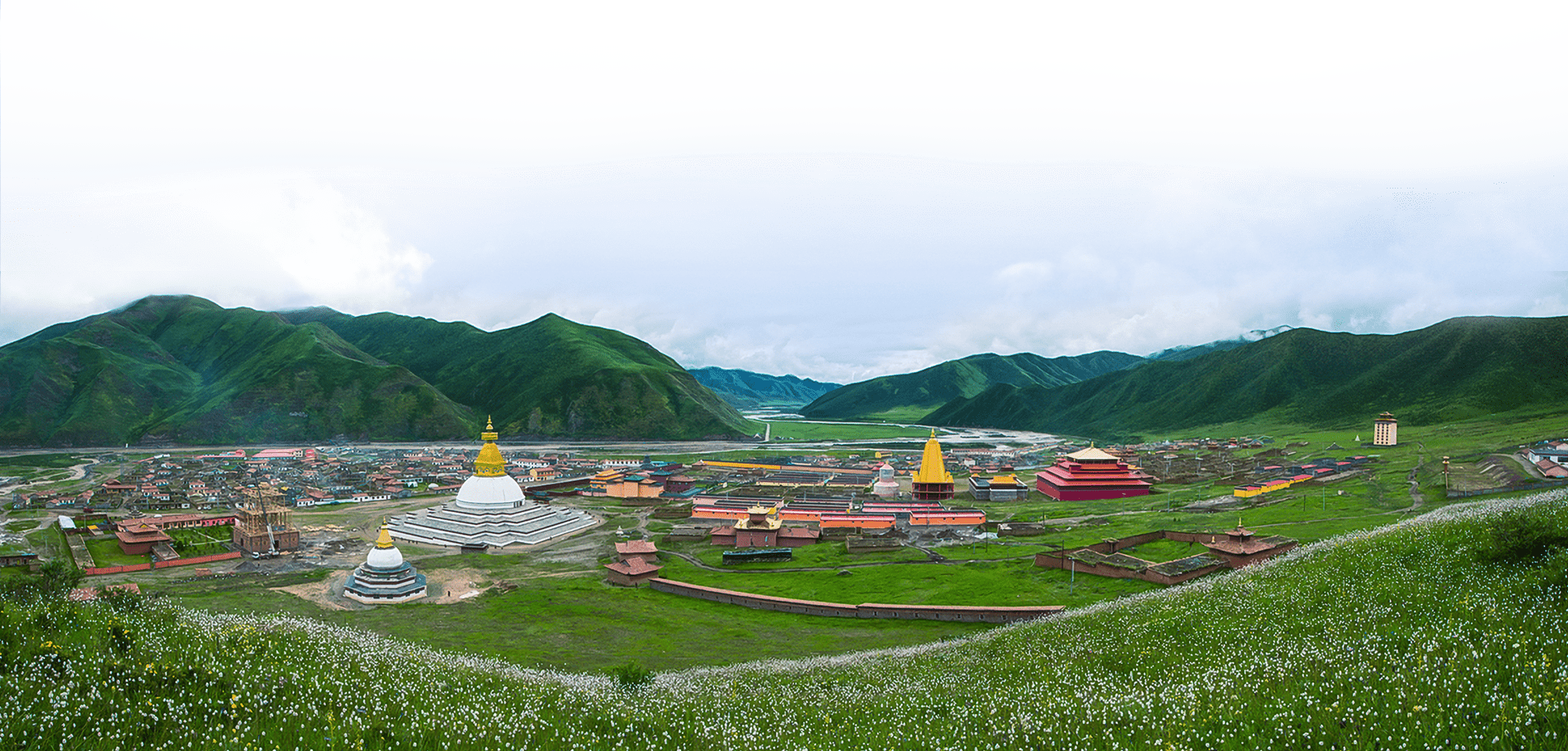INTERDEPENDENT ORIGINATION and NON-VIOLENCE: View and Action in Buddhist Tradition
19.10.2018 (M), Vinh Nghiem
Everyone here to attending this ceremony has been through different motivations and different efforts. When there is no motivation or there is no conditions then probably you are not here at the moment. But because there are many conditions and reasons for you to be here – your motivations, your efforts – so you’re here. That’s the result of karmas and causes. Since we have this karma, being together, we will try to make this something meaningful, make this turn into good actions.
Buddhism is a religion that very much tries to understand the mind. So, therefore, it is more like idealistic. We can say that this is like idealistic. We put motivation in the center, we make motivation the main figure of everything. Of course, the vision and the action we put after this idea of Buddhism is try to achieve some good result, try to accomplish some virtuous actions. What makes a good action a good action is pure motivation. Since we are very ordinary people, our motivation may not be excellent, may not be not perfect one. But we have to try to make our motivation perfect, to make our motivation very pure through [good] understanding, through training the mind.
What causes all the troubles and misunderstanding, unhappiness is so-called “selfishness”. Because our nature is ordinary people, we are so much self-centered people. We put ourselves in the best and in the very center and then we try to serve, we try to do anything we can for oneself. We try our best to make oneself happy, to make oneself famous, rich v. v. But that is not a correct way to make oneself very happy, because of the self being in the center we are too much selfish. Therefore, train one’s mind through Bodhicitta motivation, through loving kindness, through compassion. Try to eliminate this such strong desire to the self. Try to subdue their attachment to the self. And try to understand it is important to see others important, to try to benefit others.
Whenever, for any reason, one is being very self-centered, one is creating a lot of problems for oneself. Because self-centered-ness is an idea of seeing the importance of self and it produces a lot of poison in the mind. Selfishness is the main cause to create all negative emotions, three poisons or five poisons. Therefore, as long as one is being self-centered person, then one is having a lot of this mental distraction, having a lot of attachment, ignorance, anger, pride, jealousy and so on.
Regularly we see the self exists independently. And because of that idea we grow a lot of grasping on the self in our heart, in our mind. As long as we see self as independently existing, then we believe in everything being truly established. And we do not try to see the nature, try to see the reality of phenomena. We only believe in everything being real.
Because of that, we see things exist independently. And that creates such grasping, such strong desire. Desire means something that we believe in and believe something that truly exists there forever: it is created by itself but not through so many factors, so many conditions. That’s how we see things regularly. Then we make some sort of habit, some understanding: “That is the way I understand. That is the way it exists.” That is our habit.
But when Buddha turned all of the Dharma wheels, especially Dharma wheel on the Mahayana and one the Prajnaparamita, Buddha teaches all phenomena exist due to many factors, due to interdependent origination. There is nothing exists truly or has its nature, but according to a lot of conditions; and things, phenomena do not have essence, do not have any nature. All phenomena don’t know how to be born without conditions. They appear through many reasons, through many factors, through many parts. That is called interdependent origination. And when one try to understand the view of interdependent [arising], then one sees how things truly exist. What kind of nature, what kind of essence things obtain? How they grow, how they appear, how they arise? Then we understand better how they’re born, how our phenomena appear.
What is Buddhism? What makes Buddhism? There are two parts, two important parts or qualities that make Buddhism is Buddhism. One is view, one is action or conduct. Interdependent arising is the view of Buddhism and non-violence action is conduct of Buddhism. So, as a Buddhist person, Buddhist practitioner one should understand these two important parts. One should try to understand, try to accomplish, try to focus and try to apply on the two things; one is the view: to understand everything arises from conditions and factors; and: any conduct, any action has to be very peaceful and should not be harmful, but peaceful.
When one understands nothing exists naturally, but through many conditions and many parts and understand that very well, then we can see everything is like a dream, because they do not have nature to really arise from its own nature. It has to depend on many factors, many conditions. So, everything is like a dream, not something that is really real but like a dream. Everything appears and disappears. Everything changes [according] to the way we see. According to your view, everything will be changed. For example, when we were very small children, we see everything differently. Toys are something small. For adults it is nothing, [but] for small ones, for kids they are something very important. When a toy breaks, it hurts. And it makes our children, our kids cry but we probably may laugh. Because we understand that is not important. Then once our view reaches at high level, all of these things like fame, wealth and relationship, all of these, become actually like a toy. For those noble ones, they think we are children; we play around like children. The view. When our view changes then everything changes. Nothing actually is there forever like the same way, same situation or the same value, but everything changes according to how we understand.
We [have to] understand that the main reason for us to be ordinary people is because we have many small ones and very narrow minded. When the mind is very narrow, very small, everything becomes very sort of big deal. Anything, everything. Like a small child makes a big deal because of small toys. But if we want to try to do something to make oneself bigger, better or higher then we must try make more space in the mind, to make the mind greater. How do we do that? We can only do that through the understanding of the interdependent origination. Only that way. If we believe external things truly established, truly exist, then there is no way to make our mind, to make our view greater, but probably more attached to things. But when we try to understand better how things exist then that gives a lot of room in the mind to fix things better. Therefore, it is very important for us to understand the view, real nature, reality, phenomena.
Putting into too much belief in things, believing external things truly exist only causes to see everything is very important, everything is valuable. Because of that there created a lot of fear, because we already establish so much hope in the mind. So that brings at the same time a lot of fear in the mind. One thinks: “Oh I may lose this. I may leave this behind and someone may take this away.” So much fear. And that actually causes un-stability in the mind. The mind becomes unstable and always up-and-down, always worry, always fear, always scary or something. But when we try to understand things correctly, how they exist, that releases a lot of stress, a lot of fear. Because then we do not try to hold on to things very tightly, because we understand that is not something we can hold on to forever; but it goes or it comes according to conditions, according to causes, according to karmas, according to our view. Therefore, it is really important to study the essence of the Buddha’s teachings. The essence of the Buddha’s teachings gives a lot of wisdom in our mind, a lot of confidence in our mind.
What I explained earlier is what kind of view we should obtain or what kind of understanding we should have for us, all phenomena, all situations or all things. That is very important.
The second part is non-violence conduct or action. Buddhism is non-violence tradition. Therefore, our action should not involve any sort of harmful actions but very peaceful, and very gentle, very sweet. When we say non-violence actions means actions not to oneself only but to all others. The action should be peaceful action, always requested by the Buddha teaching. Therefore, we have to have a good way of creating non-violence action or karma, conduct. Also, motivation in the mind. We have to have a good mind, so that we can have good action. We should have very pure or very kind mind so that we can have kind action and sweet action.
We should study how to practice compassion and kindness, bodhicitta so that our conduct, our action be more genuine, softer, more peaceful. Because every motivation [should be] compassion, then it is very beautiful to have a good conduct, non-violence conduct. So, the essence of all the 84000 teachings of the Buddha is enlightenment motivation, Bodhicitta. Bodhicitta is center of all Buddha’s teachings. Bodhicitta is the best condition, best cause for anyone training the mind to create good action, to create genuine compassionate action.
Any Dharma practice, any good action, one tries to accomplish, one must not forget thinking of this compassion and Bodhicitta development. By only that way one is able to accomplish something real, something meaningful, something that is truly beneficial for everyone, including oneself. When one forgets enlightenment motivation, when one is going to practice [but] loses the essence for that practice, one does not achieve such a good result. Therefore, it is important part to remember: to train one’s mind through enlightenment motivation.
To develop renunciation, to develop compassion, Bodhicitta one doesn’t have to go far away, but one can practice this wherever one acts. For example, Buddha Shakyamuni develop his Bodhicitta motivation when he was in hell realm. And Buddha Shakyamuni developed renunciation when he was in society. To develop Bodhicitta, to develop renunciation, it is very important for a Dharma practitioner to see things in the society, to see problems, to see sufferings, to see troubles that are in society. Without seeing this, without knowing this, one does not have interest to develop this motivation. But when one sees such problems, such things, then one understands: “This is not something that I want. This is not only value that one wants to achieve. There must be something better, something pure, and meaningful.” And then one tries to think.
But there is almost no chances for us to develop [that motivation], because we don’t think. We don’t know and we think everything seems ok, everything seems perfect. And we don’t do anything, just continue to do things that we do regularly. But when one sees a lot of problems then that makes one have a different idea. That’s a very good way for us to understand the reality of society or reality of samsara.
The end of the teaching in the morning 19.10.2018
English typewritten transcript of Hungkar Rinpoche teaching 19.10.2018
MP3 source: lienhoaquang.com









